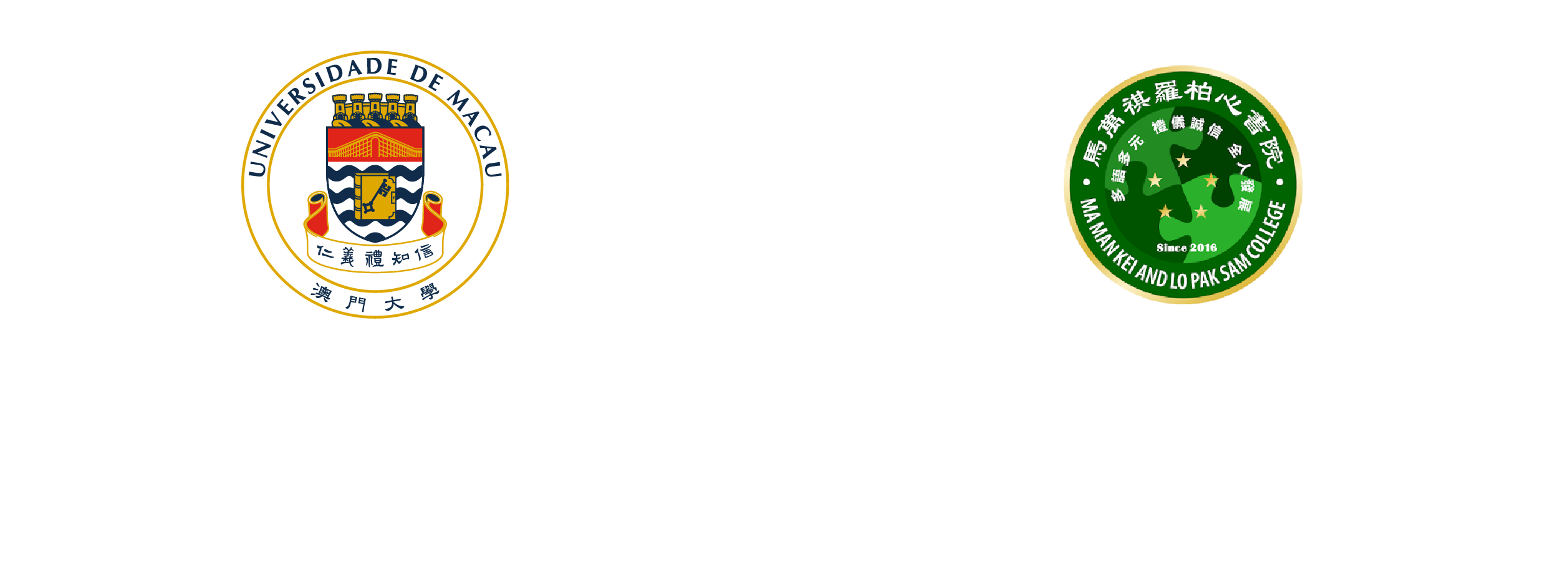
The Interweaving of AI, Arts, and Poetic Imagination:
UM Ma Man Kei and Lo Pak Sam College Co-hosts International Summer School with World-renowned Universities

In the height of summer in Jiangsu, the “Art, Artificial intelligence and Global Humanities” International Summer School 2025 jointly organised by Nanjing University’s Institute for Global Humanities, the School of Intelligence Science and Technology of Nanjing University, Ma Man Kei and Lo Pak Sam College, University of Macau, and the University of Southampton was held across Nanjing University’s Suzhou and Xianlin campuses. More than forty students and scholars from China, the United Kingdom, the United States, Portugal, and other regions gathered for two weeks of courses and cultural exploration. Together, they engaged deeply with how artificial intelligence is reshaping the boundaries and meanings of art and humanities research, forged lasting bonds, and co-created a refreshing academic experience.
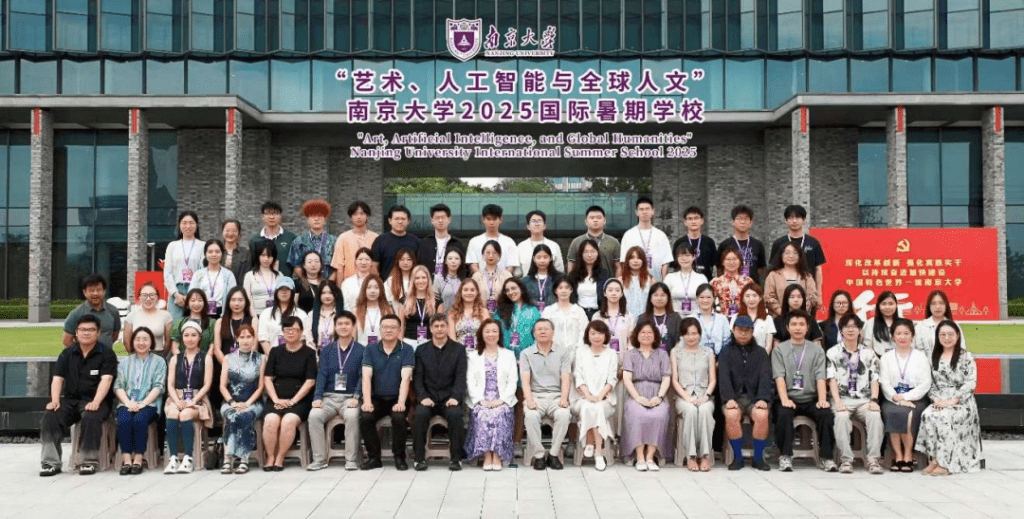
Inspiring Opening Remarks
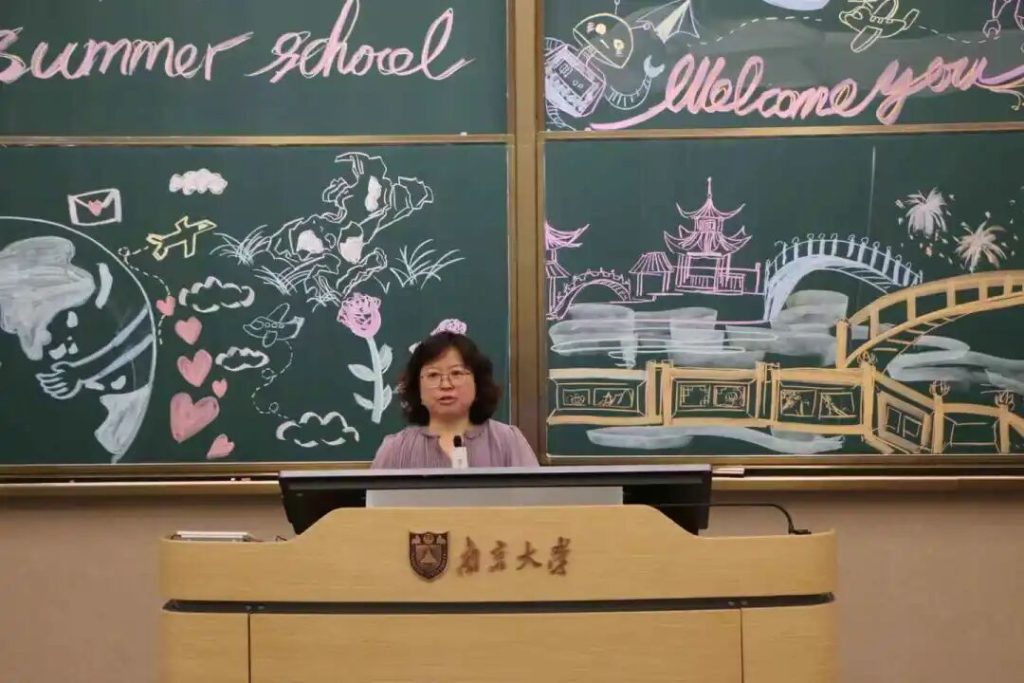
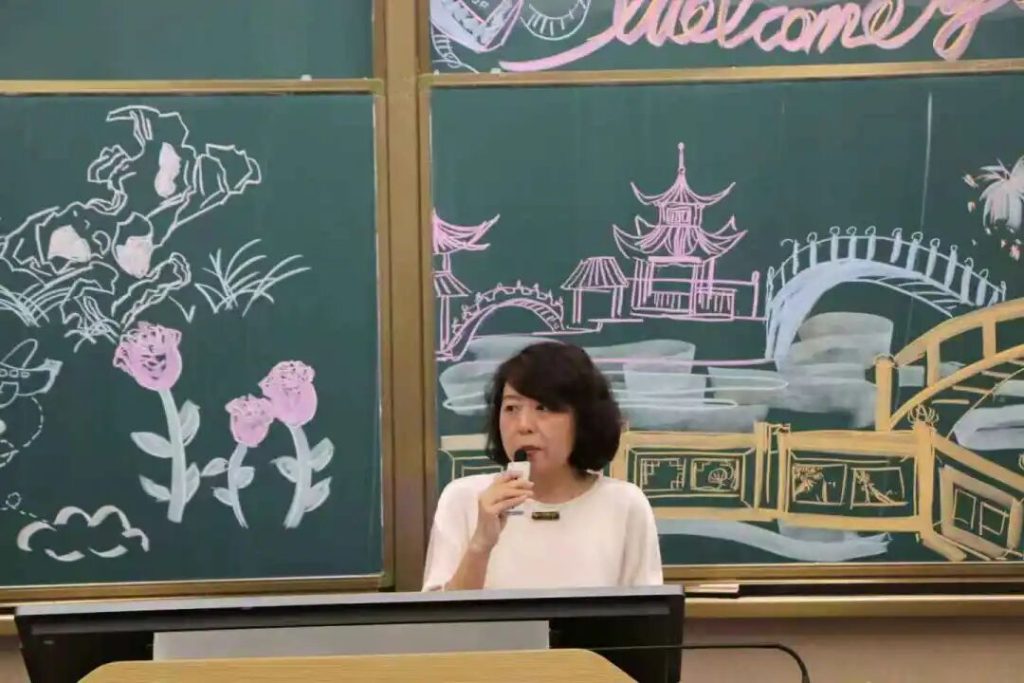
The opening ceremony was hosted by Prof. DU Lanlan, Associate Director of Nanjing University’s Institute for Global Humanities.
Ms. HU Jie, Deputy Director of the Office of International Cooperation and Exchanges, first delivered a welcome address on behalf of Nanjing University. She highlighted the vital role of international collaboration in advancing talent development and academic exchange, noting that this summer programme embodies ambitious goals and offers students worldwide opportunities to learn and connect AI-related challenges.
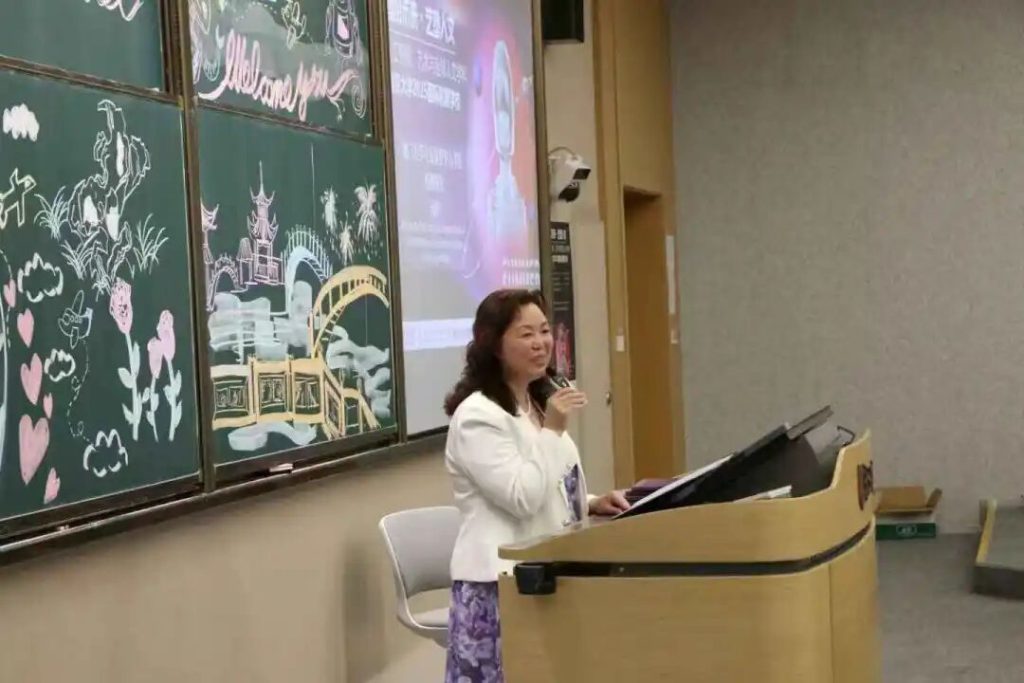
Prof. YANG Liu, College Master of Ma Man Kei and Lo Pak Sam College at the University of Macau, emphasised in her remarks that “In the face of rapid rise of artificial intelligence, we must bring together humanity, innovation, and responsibility. We must appreciate cross-cultural ideas and understand the global nature of the AI revolution, cultivate interdisciplinary collaboration, and learn from history, language, and geographical contexts and cultures—so that scientific rationality, heritage and privacy protection, and the poetic dimensions of life may be harmoniously integrated.”

Prof. DAI Wangzhou, Associate Dean of the School of Intelligence Science and Technology, spoke from the perspective of technology education, stressing the indispensable role of the humanities in STEM. He remarked that the essence of contemporary education lies not in what machines can create, but in how humans and machines collaborate to redefine the true meaning of “creation”.
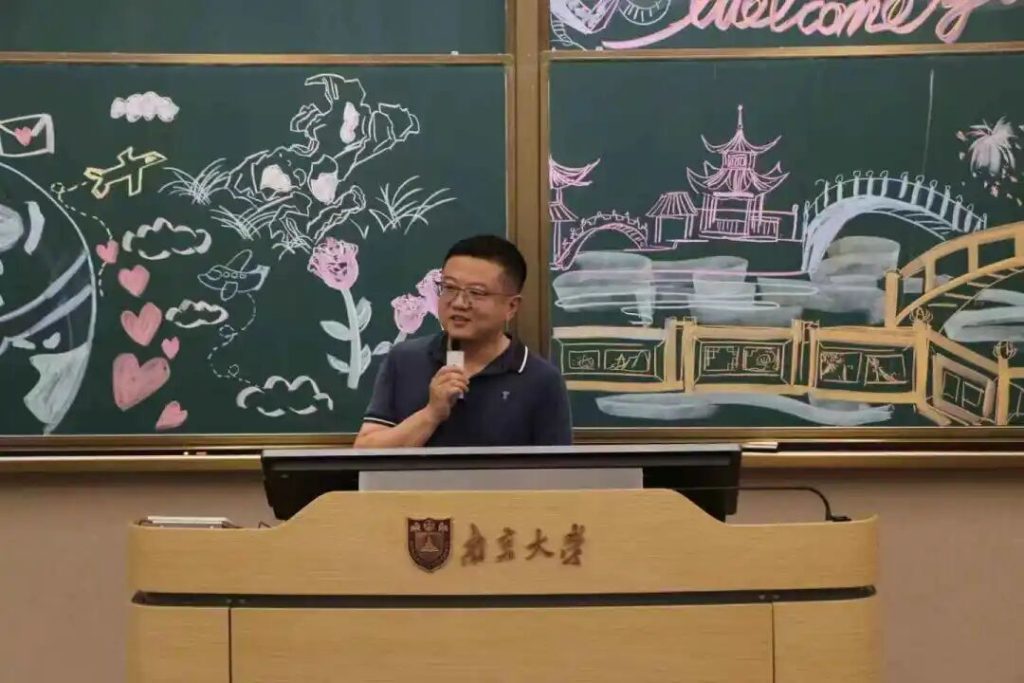
From the angle of talent cultivation, Prof. Pan Bai, Associate Dean of Nanjing University’s Undergraduate School, offered several reflections on the mission and responsibility of universities in the age of AI. He summarised the features of this programme through the concept of the “Three Highs”—high-density learning, high-level of teaching, and high-level of preparation. He encouraged students to prioritise personal growth over the pursuit of success, and to value contribution before recognition, reminding them that these qualities form the true foundation of meaningful global exchange.

From the University of Southampton, Prof. Sunil Manghani reflected on the challenges and opportunities AI brings to the arts and humanities, underscoring the importance of cross-cultural critical thinking in contemporary education. He introduced the course themes and objectives and encouraged students to ask bold, challenging questions. He pointed out that such open-ended inquiry often reveals valuable pathways for exploration—moments where teachers and students can learn and grow together.

Finally, Prof. HE Chengzhou, Director of the Institute for Global Humanities, presented a detailed introduction to the programme’s academic design. He explained that the curriculum focuses on the principles of “cross-culture, cross-discipline, and cross-region,” integrating topics such as AI ethics, digital humanities practice, and innovations in traditional arts. These components aim to guide students in understanding the relationship between technology and the humanities through multiple perspectives. Participants will visit the Suzhou Wu Culture Museum and the Digital Exhibition Hall of the Nanjing Museum, gaining first-hand insights into the interwoven threads of technology and culture.
Prof. HE highlighted the campus’s founding vision—“ Integrating Chinese and Western cultures, linking ancient and modern traditions and outlined its development and future direction. He also presented “Special Contribution Certificates” to the programme’s co-organisers in recognition of their support and dedication.
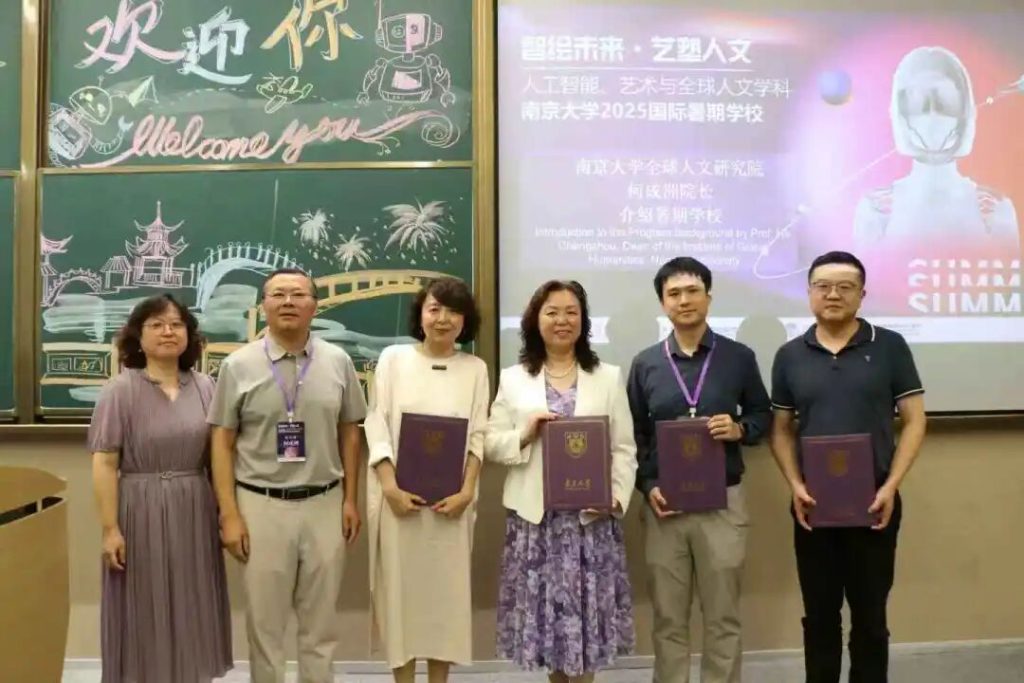
Interdisciplinary Academic Engagement
The first lecture was delivered by Prof. GUO Lanzhe from the School of Intelligence Science and Technology at Nanjing University, with Prof. YANG Liu of the University of Macau serving as moderator. Titled “The Journey of AI: From Origins to the Frontiers,” Prof. GUO traced the evolution of AI from symbolic systems and connectionism to today’s large-model paradigm. He outlined the core ideas and technical pathways, compared their strengths and weaknesses, generalisation, data dependence, and reasoning ability.

Building on this foundation, he explored future directions such as embodied intelligence, neuro-symbolic integration, and AI credibility, and highlighted the key challenges and potential breakthroughs required to achieve Artificial General Intelligence (AGI). Bridging historical insights with cutting-edge developments, he offered a comprehensive view of AI research and its emerging landscape.

Guided by Prof. YANG, students engaged in lively discussion, examining the multiple possibilities of AI’s future from rational and interdisciplinary perspectives. The lecture not only reviewed the historical trajectory of artificial intelligence but also gave insight toward future research directions, reminded us that AI development involves not only technical advances but also profound educational, social, and ethical implications—innovation must be accompanied by humanistic purpose.

AI and the Healing Power of Creativity
Dr. Ka Wai FUNG, Associate Master of Ma Man Kei and Lo Pak Sam College, delivered a thematic lecture titled “Artificial Intelligence and the Healing Power of Creativity: A Journey Toward Well-being.” He emphasised that creativity itself is a powerful healing force that helps students express emotions, relieve stress, and find balance between academic demands and everyday life. Drawing on his experience in residential college education, he shared how AI tools can support students in academic planning, career exploration, and emotional regulation, and illustrated practical applications of AI in enhancing well-being and motivation.

Multidisciplinary Perspectives on AI
Professors from Nanjing University contributed a rich array of perspectives across diverse fields. Prof. XIAO Yineng from the Global Institute of Intellectual Property Institute, Nanjing University examined the copyright and legal challenges arising from generative AI, urging students to consider the ethical responsibilities and institutional boundaries that accompany innovation.
Associate Professors HUO Jing and WANG Shuo of the School of Computer Science transformed abstract computational processes into intuitive artistic expressions through live demonstrations, allowing students to witness how AI intervenes in artistic languages and expands the boundaries of creative imagination. Together, these perspectives created an academic landscape that balances theoretical depth with human warmth.

Humanities, Culture, and the Post-Knowledge Landscape
From the University of Southampton, Prof. Sunil Manghani delivered a three-part lecture series—“The Age of the Technological Singularity: When AI Creates Itself,” “Structuralism, Dreams and Cultural Archive,” and “AI, Knowledge and Electron Life.”
For the lecture “Structuralism and the Cultural Encoding of AI,” He was joined by Prof. Larry Lynch, Dean of the Faculty of Arts and Humanities at Southampton, who engaged in an illuminating dialogue with Prof. Manghani, offering students a richly cross-disciplinary and cross-cultural intellectual experience. Prof. Manghani guided students to reflect on AI’s ethical challenges and cultural implications within the broader landscape of human knowledge, encouraging them to consider how individuals can maintain agency and spiritual freedom amid the sweeping tide of technological transformation.

Games, Culture, and Technology
Lecturer XIONG Shuo from Huazhong University of Science and Technology approached the topic from the lens of game culture, demonstrating how AI functions as a technological medium for cultural transmission. His lecture invited students to rethink the relationship between entertainment and society. He also highlighted that games are not merely entertainment but a cultural language that reflects values and the spirit of the times.

Vibrant Cultural Exploration
This summer programme offered students the opportunity to combine history, culture and technology within the same journey. At the Humble Administrator’s Garden in Suzhou, they immersed themselves in the spatial aesthetics of classical Chinese gardens through VR, while at the Nanjing Museum they observed how digital restoration brings new life and detail to cultural relics. The student also visited the iFlytek Research Institute and Nanjing University’s Embodied Intelligence Lab, observing firsthand the real-world operation of technologies such as speech recognition and robotic perception.


These experiences were far more than simple tours—they were opportunities for students to combine traditional culture and contemporary technology together. Students learnt that history is more than what appears in textbooks, and technology is more than lines of code. In real life experiences, the two can illuminate one another, making learning richer, more dimensional, and more imaginative.

Innovations that Interweave Technology and Emotion

The closing ceremony of the summer school was held on the afternoon of July 12, 2025, at the Du Xia Library on Nanjing University’s Xianlin Campus, hosted by Dr. ZHANG Xun of the Institute for Global Humanities. Prof. HE Chengzhou, Director of the Institute for Global Humanities; Prof. Sunil Manghani of the University of Southampton; and Prof. DAI Wangzhou, Associate Dean of the School of Intelligence Science and Technology, attended the event to witness the students’ accomplishments.


The final exhibition featured six groups of student projects, ranging from generative art and philosophical narratives to interactive game design guided by Associate Professor SHI Ke of the Institute for Global Humanities. Students received strong support from an interdisciplinary team of mentors, computer scientists assisted with technical implementation, while humanities scholars deepened conceptual reflection, embodying the vision of integrating technology with the humanities.

Among the works, the students from the University of Macau demonstrated outstanding interdisciplinary insight and practical creativity. CHEONG Kam Pui and LIU Jinshi contributed to a project that used AI to restore the colours of Han Dynasty stone carvings, constructing a philosophical visual narrative themed around “Heaven–Earth–Cosmos.” Their work blended art history with colour psychology, sparking an imaginative dialogue between the ancient past and the future. LIU Jingting and GONG Zizhuo created the interactive artwork “Have You Ever Seen Yourself?” which integrates facial recognition technology with large language models. Together they designed Ziggr, an AI character that responds to the user’s expressions and words, guiding viewers into a reflective conversation with their own emotions and helping them rediscover their inner voice.


Other teams produced distinctive works: a group reconstructed Han Dynasty pattern through GAN networks to interpret the triad of “Heaven–Earth–Human”; another created a five-act of AI-generated sci-fi drama challenging the idea of technology as a source of faith; one team designed an interactive game, Fire Seed, allowing players to experience the development of AI through gameplay; an international group produced a documentary LAZY? ASK AI examining AI’s value as a tool; and an experimental film, The Six Spirits, reimagined themes from Journey to the West through digital identity metaphors.


A Celebration of Creativity, Inquiry, and Interdisciplinary Learning
This summer school provided students with a platform for hands-on experimentation across disciplines and enabled humanities and technology to intersect in a meaningful and constructive ways. The resulting works not only showcased the power of interdisciplinary collaboration but also inspired students to transform creativity into both academic and artistic expression. Ma Man Kei and Lo Pak Sam College will continue to advance an educational vision that bridges technology and the humanities—ensuring that learning in the age of AI is not only about precision and efficiency, but also about human warmth and the poetic imagination that opened up creativity.


